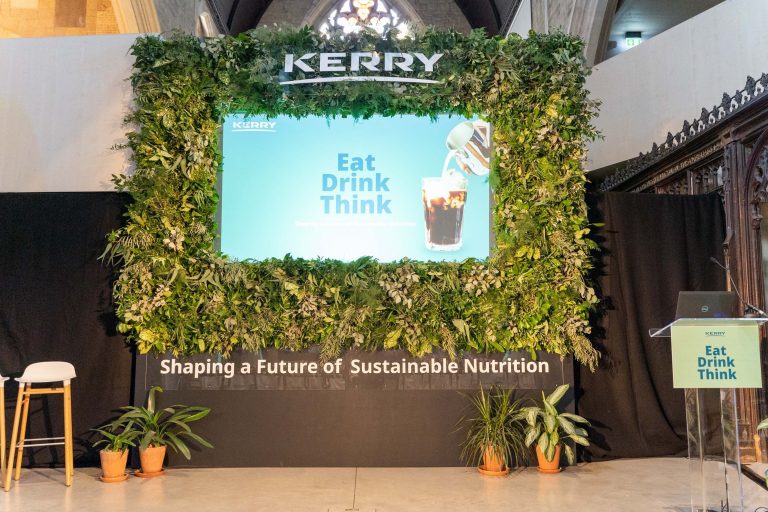Kerry, a world leading taste and nutrition company, has hosted a first of its kind summit for senior leaders from the foodservice sector.
The summit gives businesses the opportunity to share new research, knowledge, and insight into the importance of industry sustainability.
Hosted in London on Thursday 8th September, the event showcased Kerry’s new proprietary research.
The company’s research examines how consumers interact with sustainable nutrition. It also shares recommendations on how foodservice operators can integrate sustainability, indulgence, and health into a winning proposition.
With over half (55%) of consumers reporting that they are now eating more sustainably since the COVID-19 pandemic, foodservice has a central role to play in helping consumers make more informed, sustainable choices.
Thought leaders from across the sector who provoked inspiring conversations throughout the day included sustainable chefs and influencers. Some of the names mentioned were Thomasina Miers, Arthur Potts-Dawson and Max La Manna, and innovative foodservice operators MAX Burger, Brakes, Guinness & innocent.
Commenting on the findings, Daniel Sjogren, VP Foodservice at Kerry said: “To truly accelerate the creation of a world of sustainable nutrition, we need to make the business growth agenda and sustainability one conversation.
“Our industry needs to act now and provide healthier and more sustainable food and beverage offerings, that deliver on taste expectations of consumers and ultimately are better for the planet and society.
“People are integrating sustainability into their everyday choices and becoming significantly more proactive in living a more sustainable life. As a result, there are great opportunities for foodservice operators to respond to these new needs and expectations and grow their businesses successfully with a more sustainable model.”
The results show a sustainable tipping point. For the first time, the majority of participants indicated strong sustainability preferences and displayed a sense of frustration around the difficulty in making more sustainable choices.
Kerry has reported that 65% of consumers said they are looking for sustainable options made easy, so that they can feel more empowered to make the better, more sustainable choice.
The majority (59%) of the company’s research consumers also believed that sustainably sourced meals and drinks were the healthier option. Kelly’s research consumers felt that these foods could be considered higher quality with greater nutritional benefits.
Drawing on behavioural science, Kelly’s experiment featured different menus. The content of each menu varied from price, CO2 emissions and calorie content to demonstrate that these labels can impact consumer choices.
This highlights that foodservice operators have an opportunity to incorporate more sustainable choices, especially when targeting consumers that actively want the industry to make sustainable menu choices more accessible.
Kerry highlighted a strong industry-wide belief that acting sustainably comes at a cost, 51% of participants agreed that they were happy to pay more, however, they felt they would need clear communication explaining why it exists.
Daniel Sjogren added: “Consumers want to see more sustainable choices on menus – that is what they are telling us. These research insights help us and our customers to better evolve the sustainable offerings and communications to meet consumers’ growing expectations without compromising on taste and nutrition.
“I believe that our sustainability ambitions can be achieved if we embrace a more collaborative approach throughout the value chain of bringing food and beverages solutions to the consumers. At Kerry we are excited to partner with customers to bring this to life.”


